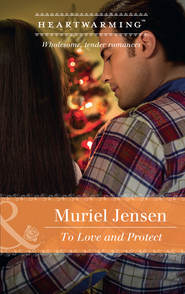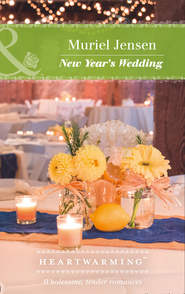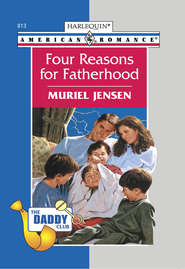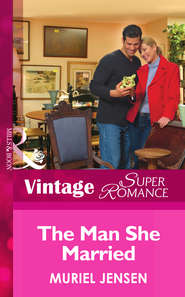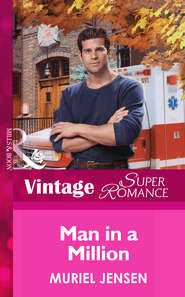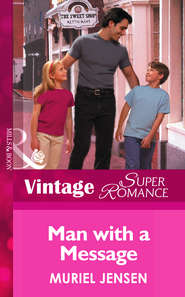По всем вопросам обращайтесь на: info@litportal.ru
(©) 2003-2025.
✖
The Man Under The Mistletoe
Автор
Год написания книги
2019
Настройки чтения
Размер шрифта
Высота строк
Поля
“What? How could you possibly know that? You’ve been here all of two days.”
Ginger shrugged. “It’s a gift. I know where the stories are and who wants to buy them. I met a woman on the train coming in who knew all about her. She was returning from Christmas shopping in New York. Seems Camille told a mutual friend of theirs in confidence and she told me.”
“Some friend.” Sonny chased her up the stairs. “You will not ask her about her…” Her voice faded as a door closed.
Oh, no. Camille’s daughters, Paris Sanford and Prudence Hale, were Rosie’s friends. Rosie knew there were shocking facts about Paris’s father that Camille wouldn’t want to discuss. Rosie trusted her mother to talk her aunt out of promoting the book idea.
Of course, talking Ginger out of anything was a major undertaking. She’s been married at seventeen, divorced at nineteen, married again at twenty-one, divorced five years later—and then married a third time at the age of thirty. She was now divorced again.
The four Chamberlain sisters, of whom Ginger was the eldest, had grown up in Beverly Hills, daughters of a prominent heart surgeon and a gifted cellist. Ginger was now a literary agent in New York City, while the second eldest, Sonny, had given up her plans to study law when she’d married Hal Erickson in her senior year at Princeton. Sukie, or Susan, had been sickly most of her life but thanks to a doting husband, lived comfortably in Palm Springs; Sonny and Ginger planned to visit her together right after the wedding. The youngest sister, Charlotte, had had a brilliant career in music, before dying in a tragic traffic accident when she was only twenty-five.
Rosie still found it difficult to equate the motivated and single-minded mother she knew with the dewy-eyed college senior who’d thrown in her lot to support the brash and ambitious son of a longtime Maple Hill family.
Hal Erickson had built a large, successful construction company in Boston. When his father passed away, he sold his business and took over the helm of his father’s Berkshire Construction in Maple Hill. He’d maintained the company’s reputation for quality work, got involved in bringing business to the community. He’d been serving his second term on the town’s Industrial Growth Committee, and Rosie had been in the middle of her first term, when Jay had the accident. The projects under way at the time were stalled by his death, and Tolliver Textiles had backed out of the deal. The committee had been dormant until its resurrection at the fall festival dinner. She was convinced that if she was staying here, she had to take a hand in strengthening business.
But someone wasn’t happy about the plan, according to a message left on her answering machine several days ago. She hadn’t recognized the voice and caller ID had been blocked, so she’d just erased the vaguely threatening request that she let the textile plant remain in Boston.
It was impossible to please everyone, but she thought once she had Tolliver Textiles firmly interested in moving to Maple Hill, she’d ask Haley Megrath of the Maple Hill Mirror to report on the process of making the project happen from the Environmental Impact Statement on the parcel of land in question, to the construction of the building so that fears were allayed.
Frankly, she was grateful for the challenging project, even though real work wouldn’t begin until the new year.
She didn’t know how long it took other people to recover from loss, but she suspected she wasn’t even halfway there. She kept going because she didn’t know what else to do. And she had the feeling that if she stopped or gave up, her mother and sister might flounder with her.
And then there was her nephew, Chase; all he really had was the three of them. She had to keep going.
Rosie went back to the gift cataloging she’d been doing before her mother had modeled the pink suit. A corner of the large living room had been turned into a receiving area and temporary storage. Francie and Derek Page, her fiancé, had opened gifts as they’d arrived, and left the cards in the item or attached to it as Rosie had advised. Now she was being a helpful big sister and making Francie a list for thank-you notes.
“You’re sure your services don’t include writing the notes?” Francie had said, looking forlornly at the sea of gifts.
Rosie had shaken her head. “Hey, you’re the blushing bride. That’s your job.”
“I’ll pay you.”
“There’s not enough money in the world.” When she’d married Matt six years ago, their treasure trove of gifts had looked a lot like this. And she’d written thank-yous in her spare time from Thanksgiving to Christmas.
Matt. She didn’t want to think about him, though when he arrived, she’d be forced to. Until then she was going to pretend, just as she’d been pretending for the past year, that he’d never come into her life.
“Aunt Rosie!” Chase raced in, arms wide like the wings of an airplane. “Look! I’m a navy Tomcat!”
“Really.” She glanced up from her notes. “You look just like my nephew.”
“Is he fast and maneuverable?”
She smiled at his vocabulary. Obviously he was smart, just like his father. “Yes, I believe he is,” she replied. “But no one else in our family is an airplane.”
“You’re forgetting Uncle Matt,” he said, circling her again, apparently in a holding pattern.
“Uncle Matt’s an airplane?”
“He says he’s a cargo bus,” Chase said between bursts of jet-engine noises. “’Cause he carries around a lot of stuff inside.”
She stared at Chase in surprise as he landed and taxied toward her. She guessed Matt hadn’t been talking about freight. “When did he say that?”
“Just now. He’s parking the car. He said to tell you he was here in case you wanted to hide or something.” Chase frowned. “Does he mean like hide-and-seek?”
Rosie was caught somewhere between rage and horror. Matt was here! After two years of struggling with her bereavement, she was going to have to confront the only other person who’d gone as deeply into hell as she had. Only, he’d surfaced again within months, and hadn’t been able to wait for her to resurface, too. And then he’d left.
He wasn’t supposed to be here until tomorrow. But…today, tomorrow—what difference did it make? Thanks to Francie, she couldn’t avoid him. Sooner or later she had to look into the face that she’d once loved so much but that now would only remind her of the darkest part of her nightmare.
There was a firm knock on the door. Her heart leaped against her breastbone, then sank again, thudding dully. She wanted to take a moment, draw a breath, prepare herself, but Chase was already running to the front door. He had to use both hands to pull it open.
Matthew Antonio DeMarco stood in the oak-framed doorway. He was big, though in her painful memories she’d made him smaller. Long, jeans-clad legs, broad shoulders in a gray tweed jacket over a blue sweater. Dark hair unruly.
Even from across the room, she found it hard to look into his face. But after he affectionately ruffled Chase’s hair, his dark eyes sought her. He found her, though she tried to disappear into the spread of gifts. She would have sworn she heard the sound of their eyes meeting—metal on metal—like swords clashing.
“I told her you were here!” Chase said, taking Matt by the wrist and pulling him into the room. “But she didn’t hide. Maybe she doesn’t want to play, but I do! Want me to go hide and see if you can find me? Huh?”
Matt had always been one of Chase’s favorite people. Eighteen months did not seem to have dimmed that affection.
Matt gave him a very adult, guy-to-guy look. “Let’s find something to do after I put my stuff away, okay?”
“Okay. Grandma says you’re gonna stay in Aunt Rosie’s old room.”
“Old room?” Matt asked.
Chase nodded. “She lives in the guest house now. But she’s moving in here to take care of me when Grandma goes away. Want me to go put the light on for you and check under the bed for monsters?”
That was a duty Matt had done for Chase when he and Rosie had baby-sat their nephew years ago. But Chase prided himself on his bravery now that he was eight.
Matt laughed. “Yes, please,” he said.
“Want me to take your bag?” Chase reached for it.
Matt held on to it. “It’s pretty heavy. But thanks, anyway.”
“Full of all that old stuff you carry around?” Rosie asked. She hated that the first words out of her mouth were snide. She’d wanted to appear cool and remote, not reveal that he could affect her from the moment he arrived.
Chase, already on his way upstairs, hadn’t heard her. Matt nodded simply, his eyes turbulent.
Then he smiled politely, like a visiting stranger.
“Hello, Rosie,” he said. “Sorry I’m early, but connecting flights from Hartford come in only on Monday and Thursday. I didn’t remember that.” He walked farther into the room and stopped to look around him. Her mother had redone the living room since he’d left. The formal wallpaper and dark wood he probably remembered had been replaced by soft yellow walls, crisp white woodwork, and floral and ivy patterns in the upholstery and draperies. She’d put away Rosie’s father’s collection of sailboat models and had her own trinkets set about— Montovani statuary, crystal bowls filled with flowers, a Victorian lady fabric doll Aunt Sukie had made.
“It’s sunnier in here,” he observed.
“Yes, it is,” she had to agree. “Redecorating gave Mom something…something to do.” Her mother had insisted, furthermore, on doing the redecorating herself rather than hiring the work out.
Rosie had volunteered to help, grateful for something to do to keep her hands and her mind occupied.






